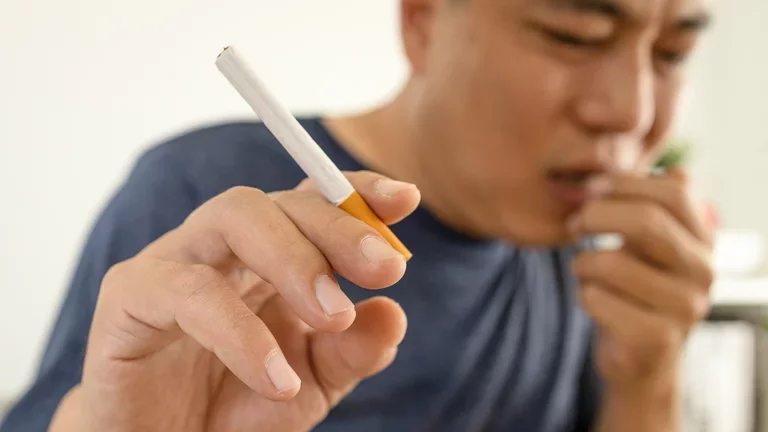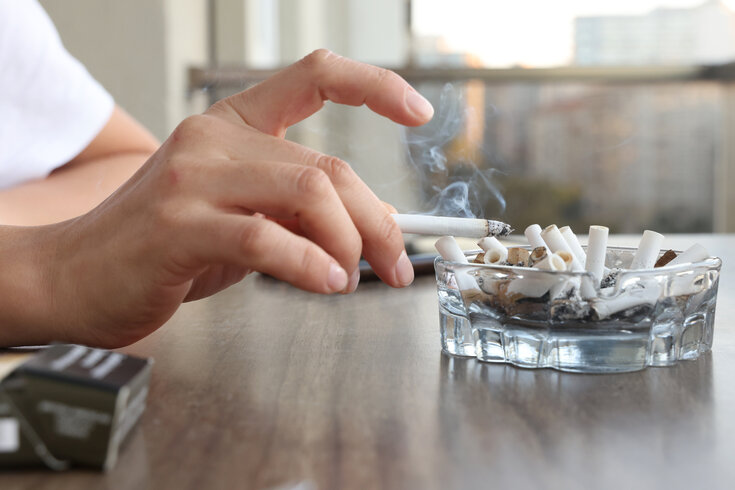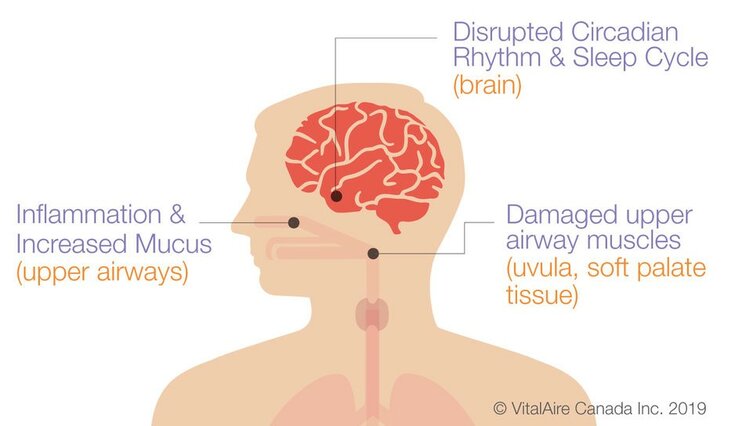Smoking and Sleep Apnea
It’s no secret that smoking can seriously affect your health, but the consequences can be worse when sleep apnea is also present. If you smoke and have sleep apnea or know someone who does, you probably wondered how smoking affects sleep apnea and overall sleep.
Smoking interferes with your body’s natural sleep cycle and has a long-lasting impact on your ability to sleep restfully. Nicotine found in cigarettes causes physiological reactions that awaken your body, can induce airway obstruction and inflammation both in the nose and upper airway, and compromise the success of CPAP therapy.
The effects of smoking on your sleep
Nicotine is a stimulant just like sugar and coffee, which can alter the expression of clock genes (circadian rhythm) in the lungs and the brain according to research, with long-term effects.
Smoking can cause frequent awakenings, snoring and make it harder to fall asleep. It also acts as an irritant that can provoke swelling in the nose and throat, reducing the space left for airflow. This makes it harder to breathe as your throat tissue becomes more irritated and swollen, which can cause obstructive sleep apnea.1
Just as you wouldn’t ‘wind down’ with an espresso before bed, a cigarette prior to going to sleep actually introduces a powerful stimulus into the bloodstream which can cause insomnia and/or sleep-disordered breathing, rather than relaxing your body.2
Can smoking cigarettes make sleep apnea worse?
If you smoke cigarettes, smoking puts you at a higher risk of developing obstructive sleep apnea and may increase its severity. Studies show that smokers are more likely to have obstructive sleep apnea than nonsmokers and former smokers combined.3
Cigarette smoking increases the risk and severity of obstructive sleep apnea for numerous reasons: it disrupts the sleep architecture (circadian rhythm and sleep cycles), can damage upper airway muscle function, fragment sleep and inflame or increase mucus congestion in the upper airway.4,5
Risks of smoking if you have sleep apnea
Sleep apnea and smoking can independently impact your breathing, but together they have amplified negative effects on your airway. The combination of smoking and non-CPAP adherence is also made dangerous as they can both provoke similar risk factors related to stroke, diabetes, airway inflammation, high blood pressure, and heart problems.
Is vaping bad for your sleep?
It can be. While e-cigarettes may reduce some of the health risks associated with smoking, vaping still delivers nicotine to your body. Vaping with flavoured nicotine products have been associated with severe lung disease that is irreversible (bronchiolitis obliterans), and also interferes with sleep. If there is nicotine in your e-liquid, it will affect your sleep.
Take a deep breath
Transitioning into CPAP therapy may be challenging for some people, although adherence to therapy is proven to treat sleep apnea. Some studies have also shown that CPAP adherence may even help you quit smoking. Smoking seriously impacts your ability to breathe and adds physical strain on your body, airway and lungs. Unfortunately, it has likely worsened your obstructive sleep apnea as well.
By starting and adhering to CPAP therapy without compromise, you can get the sleep you deserve and feel better, which may help you make other positive health choices like quitting smoking. Quitting is not easy, but there are many healthcare professionals ready to help, and our respiratory therapists are always here to help you get on the right track with your CPAP therapy so you can care for your airway and sleep well.
References:
Hwang, Jae-Woong et al. “Circadian clock function is disrupted by environmental tobacco/cigarette smoke, leading to lung inflammation and injury via a SIRT1-BMAL1 pathway” FASEB journal : official publication of the Federation of American Societies for Experimental Biology vol. 28,1 (2014): 176-94.
https://www.sleepfoundation.org/insomnia/content/what-causes-insomnia
McNamara, J P, et al. “Sleep Disturbances Associated with Cigarette Smoking.” Current Neurology and Neuroscience Reports., U.S. National Library of Medicine, 17 Sept. 2013, www.ncbi.nlm.nih.gov/pubmed/24040938.
Higher prevalence of smoking in patients diagnosed as having obstructive sleep apnea. Kashyap R et al. Sleep Breath. 2001 Dec;5(4):167-72.
Airway irritation and cough evoked by inhaled cigarette smoke: role of neuronal nicotinic acetylcholine receptors. L.Y Lee et al. Pulm Pharmacol Ther. 2007;20(4):355-64. Epub 2006 Oct 18.





